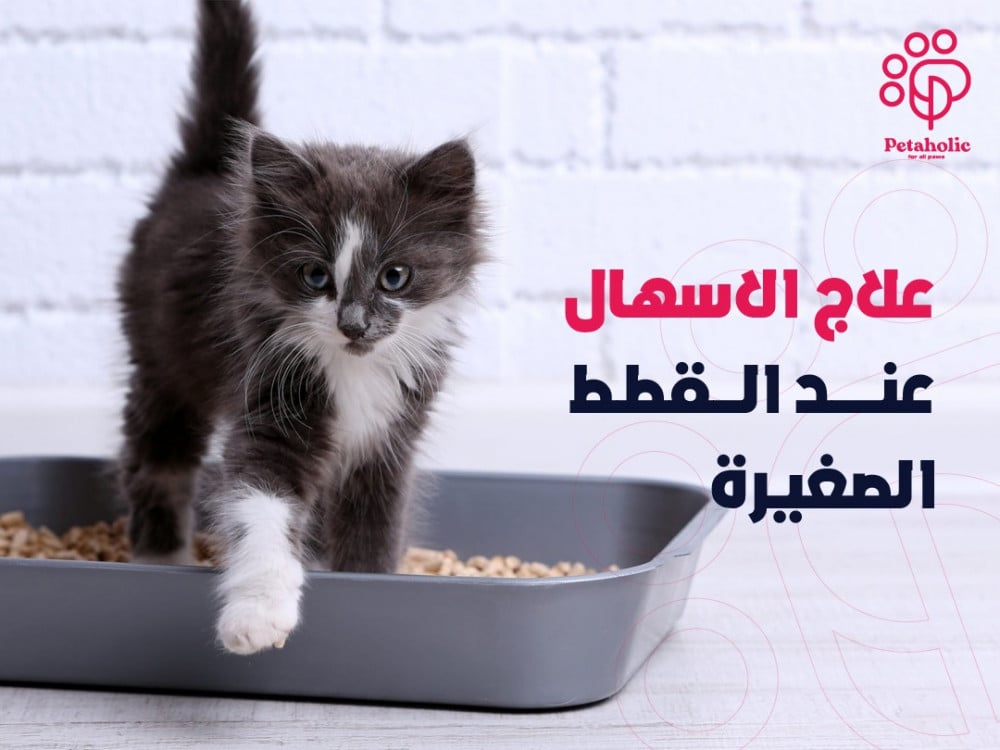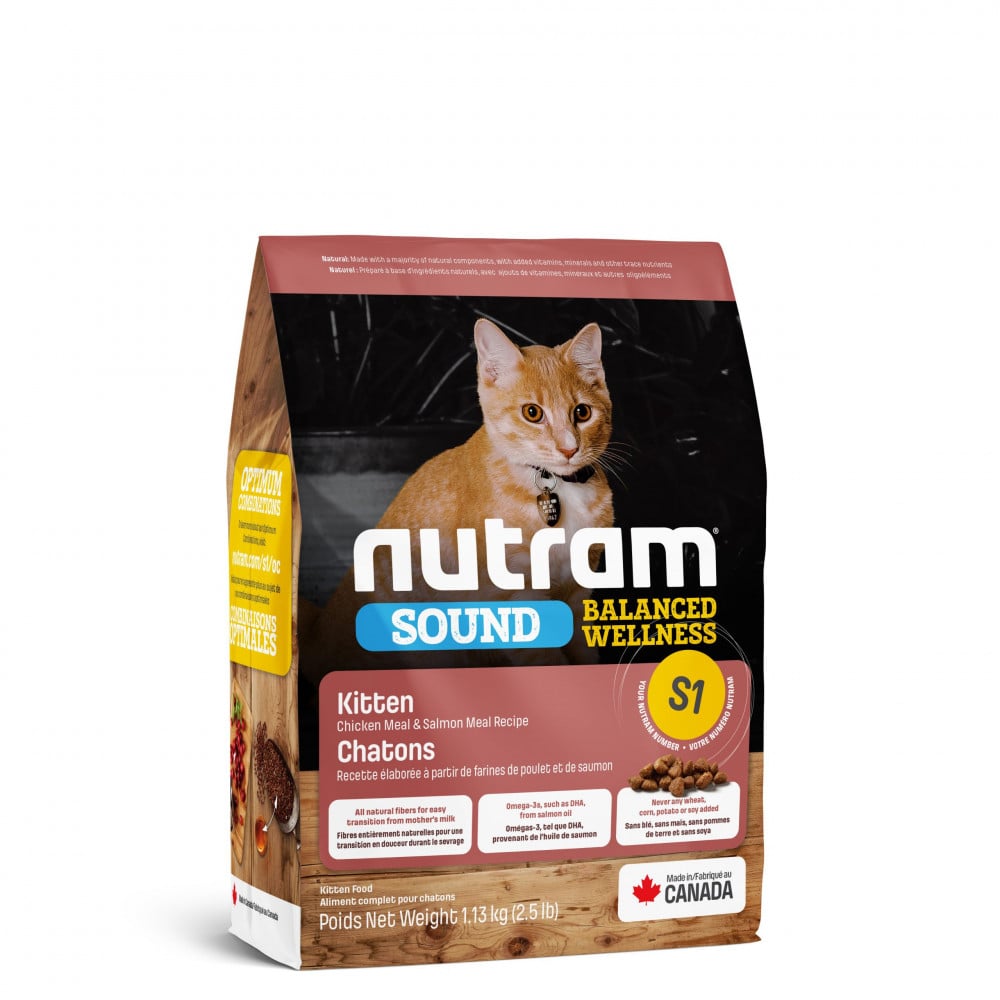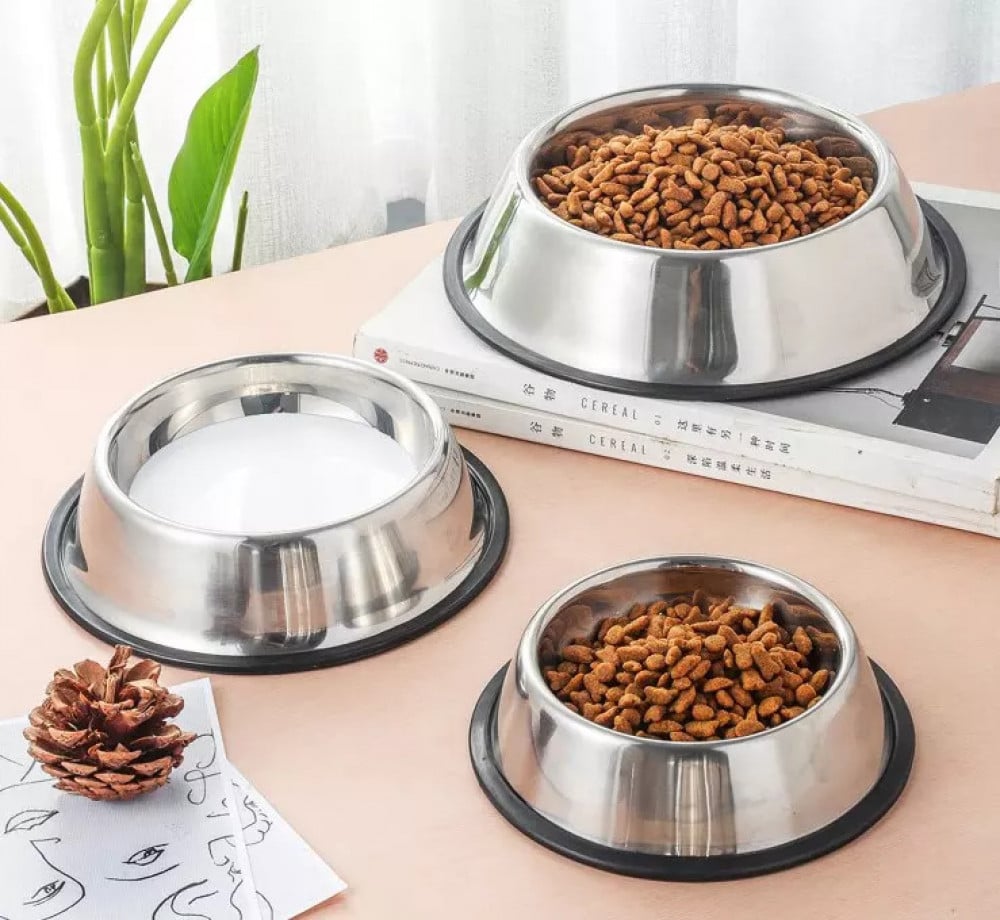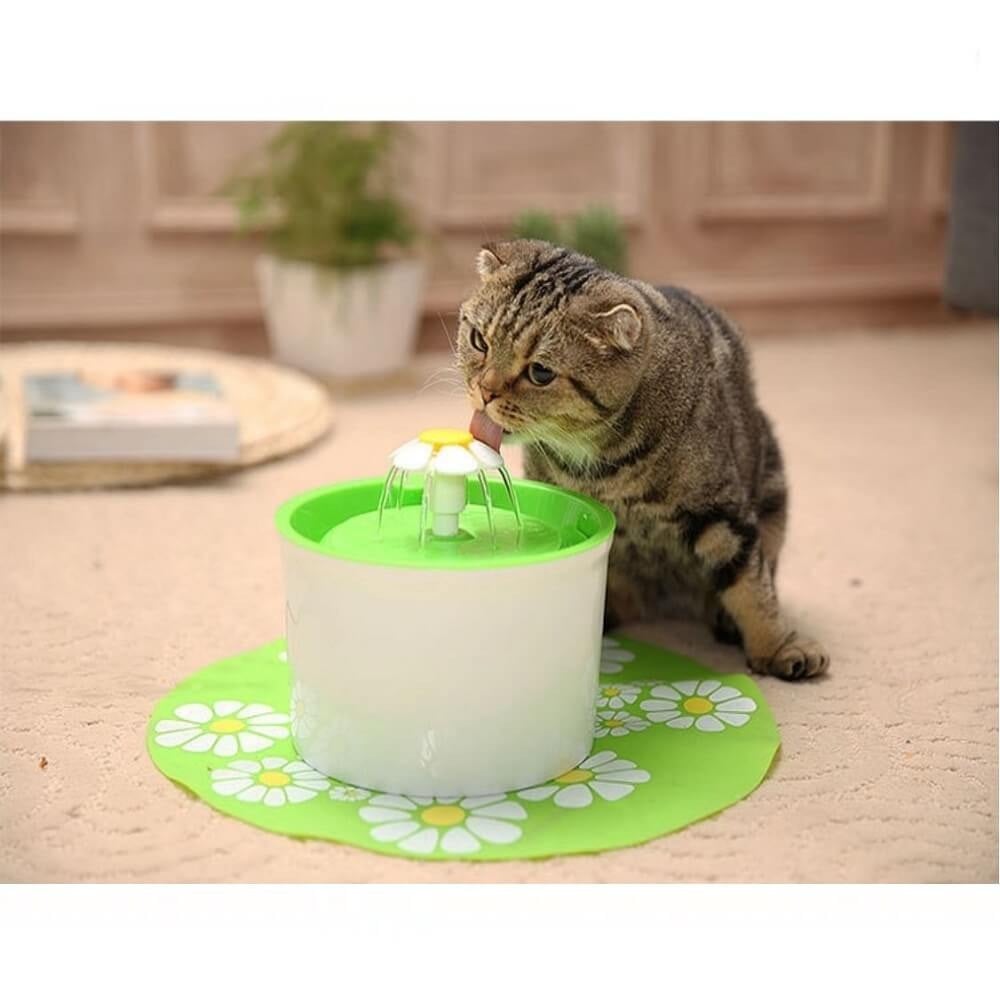
How can I find the best combination to treat diarrhea in kittens? One of the questions that has begun to resonate more recently is that these pets are sensitive to sudden changes in the environment or diet, or even suffer from food allergies, especially since all of these factors subsequently lead to diarrhea, which is a condition in which the cat secretes frequent liquid stools. If you notice loose stools, you should monitor your bowel movements to make sure the condition is not chronic or a sign of a more serious problem.
In this guide, you will know everything you need to treat diarrhea in kittens at home or with the help of a veterinarian.
What treatment for diarrhea in kittens does the vet prescribe?
When it comes to kitten diarrhea, it may just be a reaction to new foods, but it may also be a sign of a more serious underlying illness. If your cat has diarrhea, this is not the time to panic. Feline diarrhea is usually a treatable condition, is very common and tends to respond to the most common types of treatment.
If your cat's diarrhea lasts more than a day, she should be taken to the vet immediately. Your vet will examine your cat for underlying symptoms and will likely take a stool sample to check for internal parasites, bacterial overgrowth or other fecal abnormalities. He may also perform blood tests or other diagnostic tests, such as X-rays and ultrasound. If your cat is dehydrated, your vet may give him supplemental fluids intravenously or subcutaneously. As for treatment, it depends on the cause of diarrhea. For example:
- If your vet suspects your cat's diarrhea is related to their food, he or she will suggest an alternative food.
- If intestinal parasites are present, your veterinarian will prescribe the appropriate deworming medication. Not all anthelmintic medications kill every type of parasite, so you must determine the exact type of parasite and choose the appropriate medication for that type of parasite.
- If it is determined that your cat has a bacterial infection, your veterinarian will prescribe the appropriate antibiotics. Antibiotics may also be given if the intestine is damaged.
- If your cat has a viral infection, there are no specific treatments to stop it. Instead, treatment focuses on providing consistent care. In this case, your vet may prescribe an antidiarrheal medication, which makes your cat's stool firmer.
Among the whole foods that we recommend offering your kitten to avoid diarrhea:
How can you treat kitten diarrhea at home yourself?
There are times when you can control your cat's diarrhea without having to visit the vet for 24 to 36 hours, and here are some options we recommend to help alleviate the problem and perhaps get rid of it completely.
Change food
If your cat is healthy and has normal behavior, ask your veterinarian if you should withhold food (food only, not water) for 12 hours. After 12 hours of abstinence, offer your cat a bland, easily digestible, fat-free food. Some good options are:
- Fat-free canned cat food.
- Cooked turkey.
- Canned pure pumpkin.
- Cooked sweet potatoes.
How to apply:
Try mixing equal parts cooked turkey (boiled and drained) and pumpkin, and giving your cat smaller portions frequently throughout the day until the diarrhea goes away. If the problem does not resolve within the first two or three days of a bland diet, see your vet again.
In some cases of diarrhea, it may be necessary to permanently modify your cat's diet. You may need to give your cat a special cat food that avoids certain ingredients. A few special foods may add fiber, reduce fat intake, and increase digestibility.
Treating diarrhea in kittens with natural remedies
The following natural treatments may help reduce or treat diarrhea in kittens permanently. Be sure to consult your veterinarian for dosage recommendations.
- Red elm: A neutral fiber source that may work well to relieve bouts of diarrhea. It also acts as a natural antidiarrheal by reducing inflammation of the digestive system. It can also act as a non-irritating source of fiber to bulk up stool and slow its movement through the digestive tract.
- Chamomile: It may be especially helpful for cramps and other uncomfortable digestive symptoms that come with diarrhea.
- Probiotics: Probiotics for cats can outcompete harmful microorganisms in the gut, which may play a role in diarrhea.
Moisturizing
Since cats are more susceptible to dehydration, a cat with diarrhea will need to drink more water by any means possible. You can give your cat rice water. The benefit of rice water over regular water is that it may help improve digestion, help relieve gas and bloating, provide some beneficial minerals, and carbohydrates provide some energy. You want to use good quality white rice, brown rice is not recommended because it has a lot of fiber.
How to prepare rice water for cats with diarrhea:
- Boil 1 cup of white rice in 4 cups of water for 10 to 30 minutes until the water turns creamy white.
- Filter the liquid and leave it to cool.
- Save the cooked rice for later use.
- Once the water has cooled, give your cat as much as he or she would like to drink, but withhold it immediately if your cat begins vomiting and call your vet.
- If your cat doesn't care for it, you can add a few teaspoons of pet-safe turkey broth without onion or garlic.
Among the sanitary supplies that we recommend for your kitten to avoid bacteria and pollutants that may lead to her illness:
What do cats eat when they have diarrhea?
If your cat is suffering from diarrhea, there may be some changes to her diet that can help soothe the problem. Here are some tips on what to give your cat in case of diarrhea:
1. Cooked rice: Rice can be cooked (without any spices or oils) and mixed with boiled skinless chicken meat and offered to your cat. Rice helps firm the stool.
2. Boiled chicken or mashed vegetables: You can prepare boiled chicken without adding any spices or oil, or serve mashed vegetables such as pumpkin. Avoid adding any spices that may further irritate the stomach.
3. Provide special care cat food: Special food for digestive care cats is available on the market, which can be a good option in cases of diarrhea.
4. Avoid dry food for a while: Switching your cat back to wet food or food presented in a form specifically cooked for digestion may be better during a period of diarrhea.
5. Divide meals: Making meals smaller and distributing them over several meals a day can relieve pressure on the digestive system.
6. Clean water: Make sure to provide clean, fresh water to your cat to ensure it does not become dehydrated.
Water drinker - rose fountain with filter
If the diarrhea problem persists for a long time or gets worse, it is important to consult your veterinarian. Persistent diarrhea can be a sign of health issues that need to be evaluated and treated by a veterinary care professional.
How do I treat diarrhea in cats at home?
When you face the problem of your cat's diarrhea at home, you can follow some steps to alleviate the condition. However, if diarrhea persists for a long time or symptoms worsen, you should contact your veterinarian for careful evaluation and appropriate treatment. Here are some tips for dealing with cat diarrhea at home:
1. Catching and offering food: - Provide your cat with light, easily digestible food, such as cooked rice and boiled chicken meat (without skin and spices).
2. Refrain from dry food: - Avoid serving dry food for some time, and prefer to focus on wet food that is easy to digest.
3. Make sure to provide water: - Make sure to provide clean, fresh water for your cat to avoid dehydration.
4. Dividing meals: Divide meals into small portions and distribute them over several meals a day, which reduces the pressure on the digestive system.
5. Use special food for digestion: - Special food for digestive care cats is available on the market, which can be effective in soothing the digestive system.
6. Avoid contact with toxic materials: - Avoid contact with toxic chemicals or plants that may be present in the home and that can cause poisoning.
7. Close monitoring: - Carefully monitor your cat's condition, and note any improvement or deterioration in symptoms.
If the diarrhea problem persists or worsens, it is important to contact your veterinarian to evaluate the condition and direct appropriate treatment.
Does Flagyl treat diarrhea in cats?
Yes, Flagyl (metronidazole) is sometimes used to treat diarrhea in cats. Metronidazole is antiparasitic and antibacterial, and has an anti-inflammatory effect. Some research shows that metronidazole can be used to treat diarrhea associated with colitis in cats.
However, you should consult your veterinarian before using any medication to treat diarrhea in cats. Your veterinarian is the best person to provide personalized guidance based on a comprehensive assessment of your cat's condition, as treatment may need to determine the underlying cause of the diarrhea.
You should avoid using any medication without consulting your veterinarian, as the treatment could be ineffective or even cause additional health problems.
What causes diarrhea in kittens at two months old?
If your cat is 2 months old and has diarrhea, there can be several possible causes for this problem. Common causes of diarrhea in kittens at this age include:
1. Changing food: - When the type or brand of food is suddenly changed, this may cause disturbance in the digestive system and lead to diarrhea.
2. Parasites: - Small cats may be susceptible to infection with parasites such as deepworms or pinworms, which may be one of the causes of diarrhea.
3. Bacterial or viral infection: - Infection with certain bacteria or viruses may cause digestive problems and lead to diarrhea.
4. Changes in the environment: - Moving to a new environment, such as a new home or changes in daily routine, can lead to stress and diarrhea in kittens.
5. Ingestion of toxic substances: - If the kitten has ingested toxic or unsafe substances, this can cause diarrhea.
6. Other health problems: - Some health conditions such as intestinal infections or digestive problems can be the cause.
If the diarrhea problem persists or worsens, it is best to contact your veterinarian to evaluate the cat's condition and determine the exact cause and the appropriate treatment plan.
Treating diarrhea in a pregnant cat?
To treat diarrhea in pregnant cats or cats in general, where the treatment protocol is similar, certain procedures can be followed to improve their health condition:
1. Abstaining from food:
- At first, it is preferable to stop providing food to the cat for 12 to 24 hours, while allowing it to access water. This helps in soothing the digestive system.
2. Gradual feeding:
- After this period, a mixture of boiled chicken breasts (without skin) and rice can be served in a ratio of 50:50. This mixture can be alternated with regular pregnant cat food gradually. This diet should be continued until the diarrhea stabilizes.
3. Medical follow-up:
- It is preferable to contact your veterinarian to evaluate the condition and direct appropriate treatment. The veterinarian may order additional examinations and stool analysis to determine the cause of diarrhea and adjust the treatment plan.
4. Monitoring and modifying the diet:
The cat's condition must be carefully monitored, and if the diarrhea continues or worsens, the veterinarian must be contacted again to adjust the treatment and take the necessary measures.
Please note that these guidelines are general guidelines, and you should always consult your veterinarian for advice tailored to your pregnant cat's individual condition.
Caring for a cat with diarrhea can be messy, but with knowledge, vigilance, and lots of love, your fluffy kitty will return to her cheerful self. By following our tips in this guide, you will be able to help your cat recover from it. You can also find all the necessary foods to stop and prevent diarrhea, and the necessary supplies to care for your cat at this stage in Petaholic.
Read also:-




